The Day of the Lord Zechariah 14:1-7
Zechariah 14 begins with the following declaration: “Behold, the day of the LORD cometh” (v. 1). To understand the significance of this declaration, we must observe several facts.
First, the expression the Day of the Lord refers to God’s special intervention into world events to judge His enemies, accomplish His purpose for history, and thereby demonstrate who He is—the sovereign God of the universe (Isa. 2:10–22; Ezek. 13:5, 9, 14, 21, 23; 30:3, 8, 19, 25–26).
Second, several Days of the Lord already have occurred in which God demonstrated His sovereign rule by raising up nations to execute His judgment on other nations. For example, He raised up Babylon to judge Egypt and its allies during the 500s B.C. (Jer. 46:2, 10; Ezek. 30:3–6).
The Future Day of the Lord
However, the Bible also foretells a future Day of the Lord. For example, Isaiah 2:10–22 describes a Day of the Lord that will involve the sixth seal of the future seventieth week of Daniel 9 (Rev. 6:12–17). The apostle Paul foretold a future Day of the Lord when sudden, inescapable destruction will come on all who have not trusted Jesus Christ as their personal Savior (1 Th. 5:1–11).
Wrath and Blessing. The Bible also indicates that the future Day of the Lord will have at least a twofold nature. On the one hand, it will be characterized by darkness and a terrible outpouring of divine wrath on the world (Zeph. 1:14–15). Such will be its nature during the seventieth week of Daniel 9 (the Tribulation period).
Yet it also will be characterized by light, an outpouring of divine blessing, and the administration of God’s rule over the earth. After describing the darkening of the sun, moon, and stars and God’s Day-of-the-Lord judgment of the armies of the nations gathered in Israel (Joel 3:9–16), the prophet Joel foretold great, divine blessing “in that day” (3:18–21).
After discussing the future Day of the Lord, when the armies of all nations will war against Jerusalem and the Messiah will come to Earth to fight them (14:1–5), the prophet Zechariah indicated that “that day” will also be characterized by light (vv. 6–7), great blessing (v. 8), and the administration of God’s rule over all the earth (v. 9). Such will be the nature of the Day of the Lord during the Millennium.
Broad and Narrow. The future Day of the Lord has a double sense: It is both broad and narrow. The broad sense refers to an extended time, covering at least the entire seventieth week of Daniel 9 and the Millennium.1 The narrow sense refers to one specific day—the day Christ will return to the earth in His Second Coming with His angels.
The Narrow Day: When Christ Returns
The following facts indicate that a future Day of the Lord will be limited to one day.
First, Revelation 16:12–16 reveals that the armies of all the nations of the world will not begin to gather in Israel for Armageddon until the sixth bowl (the next to the last judgment of the Tribulation) is poured out. Thus these armies will begin to gather toward the end of that period (after the seven seals, seven trumpets, and first five bowl judgments of the broad Day of the Lord have been administered).
Second, Joel 3:9–16 and Zechariah 14:1–5 indicate that, after the nations’ armies have gathered in Israel, “the day of the LORD cometh” (Zech. 14:1) and is “near” (Joel 3:14). Thus this Day of the Lord will not take place until after the armies have gathered in Israel and a significant part of the broad Day of the Lord has run its course.
This narrow day will be a part of the broad Day of the Lord, but it also constitutes a complete Day of the Lord on its own. The broad day will cover an extended time. The narrow day will be limited to “one day” (Zech. 14:7).
Third, Joel 3 and Zechariah 14 indicate that their Days of the Lord will be the day the Messiah fights the armies gathered in Israel. According to Revelation 19:11–21, that is the day Christ comes from heaven to the earth. Thus the narrow Day of the Lord is the day Christ returns in His glorious Second Coming after the Tribulation (Mt. 24:21, 29–30).
Joel 3:14–15 indicates that the sun, moon, and stars will be darkened before the narrow day comes. Joel 2:31 declares they will be darkened “before the great and the terrible day of the Lord come.” Therefore, the narrow day of Joel 3 and Zechariah 14 is the great and terrible Day of the Lord—the day of Christ’s glorious Second Coming.
Thus Scripture applies the expression the great and the terrible day of the LORD to the narrow day, not the broad, implying that the narrow day will differ from the broad day in both duration and significance. Although the earlier part of the broad day will involve a great outpouring of divine wrath on the domain of Satan and mankind, the narrow day will be the grand climax of judgment. It will expose God’s enemies to Christ’s actual presence and the fullness of His divine power, glory, judgment, and warfare (Mt. 24:29–30; 25:31; Rev. 19:11–12, 15). It also will bring the angelic armies of heaven against God’s enemies (Mt. 13:40–42, 49–50; 25:31; Rev. 19:14), end the rule of Satan and rebellious mankind over the world system, and evict them from the earth (Mt. 13:40–42, 49–50; 25:41, 46; Lk. 17:26–37; Rev. 19:17—20:3). Thus E. W. Bullinger said, “It is called ‘the great and terrible day of the Lord,’ as though it were the climax of the whole period known as ‘the day of the Lord.’”2
Because the narrow Day of the Lord will bring such a decisive, permanent change to the world, the prophet Joel called the place where the climax of God’s judgment will fall on Satan and rebellious mankind “the valley of decision” (Joel 3:14). C. F. Keil called it the “valley of the deciding judgment, from charats, to decide, to determine irrevocably.”3
Why the Narrow Day?
Zechariah 14:2 states the reason for the narrow Day of the Lord. Before that day the armies of all nations will gather to wage war against Jerusalem. They will conquer at least half of Jerusalem, plunder the houses, abuse the women, and carry half of the city’s people into captivity. But the other half will not be removed, perhaps because the narrow Day of the Lord will begin before the armies can conquer the second half of the city.
Other prophetic passages reveal that the political leaders and armies of all nations will come against Israel and Jerusalem near the end of the future Tribulation (Isa. 34:1-8; Joel 3:2, 9-17; Mic. 4:11-13; Zeph. 3:8; Zech. 12:2-3, 9; Rev. 16:12-16; 19:11-21).
God’s Purpose. God will play a key role in gathering these leaders and armies (Zech. 14:2; Joel 3:2; Mic. 4:11-13; Zeph. 3:8). He will have two purposes. First, He will use this force as His rod to break Israel’s stubborn rebellion against Him and the Messiah so that the nation will repent (Dan. 9:24; 12:1, 5-7; Zech. 12:10-13:1). God will not crush Satan and his kingdom, remove them from the earth, and establish His theocratic kingdom-rule over the earth until Israel repents (Zech. 12-14; Acts 3:12-2 1) because God has determined that Israel will be the world’s spiritual leader during God’s millennial rule over the earth (Isa. 2:1-5; 61:6; Zech. 8:20-23).
Second, God intends to have the political and military forces of Satan’s kingdom gathered together at one location to be destroyed by Christ when He comes from heaven in His glorious Second Coming on the narrow Day of the Lord (Isa. 34:1-8; Joel 3:2, 9-17; Mic. 4:11-13; Zeph. 3:8; Zech. 12:2-3, 9; 14:3-4; Rev. 19:11-21).
Satan’s Purpose. Satan also will play a key role in gathering these political and military forces against Israel and Jerusalem near the end of the Tribulation (Rev. 16:12-16). He, too, will have two purposes. First, he will use these forces to try to annihilate Israel before it can repent. Since God will not crush him and his kingdom until Israel repents, Satan will think that, if Israel is annihilated before it repents, God will never crush him or his kingdom.
Second, since Zechariah 14:4 reveals that the immediate vicinity of Jerusalem is where the Messiah will return when He comes from heaven on the narrow Day of the Lord, Satan will want the political and military forces of the Gentile world gathered in that location to help him try to prevent Christ’s Second Coming to Earth. They will be “gathered together to make war against him [Messiah]” (Rev. 19:19).
Divine Deliverance
When Israel’s remnant in the land will be inextricably cornered, with no earthly source of deliverance from annihilation available, it will turn to God and cry out for Him to send the Messiah (Lk. 13:34-35). Then the Messiah will appear from heaven with His mighty angels (Zech. 14:5; Joel 3:11). When the Jewish people see the wounds of crucifixion in His resurrection body, they will realize that the one whom their nation rejected in His First Coming was their true Messiah. Then they will repent (change their minds from rejecting Him to trusting Him as their Messiah and Savior, Zech. 12:10-14). In response to their repentance, God will cleanse them of their sin (Zech. 13:1).
Once Israel has repented, the Messiah will go forth to fight against the political and military forces of the nations (Zech. 14:3). His feet will touch down on the Mount of Olives east of Jerusalem. The mount will cleave down the middle. One half will move north, the other half south, leaving a new valley in an eastwest direction through which the remnant in Jerusalem will escape from its enemies (Zech 14:4-5). The Messiah will destroy the world’s political and military forces with a horrendous form of wrathful judgment (Zech. 14:12-15; Rev. 19:15-21).
Zechariah 14:6-7 indicates that the future, narrow Day of the Lord will not be characterized totally by either darkness or light. Instead, that “one day” will be both darkness and light. The earlier part of “that day” will be characterized by darkness as the armies attack Jerusalem; but the latter part will be characterized by light when the Messiah comes to deliver Israel’s remnant and destroy its enemies.
ENDNOTE
- For evidence for this conclusion, see Renald E. Showers, Maranatha: Our Lord, Come!, The Friends of Israel Gospel Ministry, Inc., Bellmawr, NJ, 1995. Also Renald E. Showers, The Pre-Wrath Rapture View-An Examination and Critique, Kregel, Grand Rapids, 2001.
- E. W. Bullinger, The Apocalypse or “The Day of the Lord,” Eyre and Spottiswoode, London, 1935, p. 248.
- Carl Friedrich Keil, The Twelve Minor Prophets, Vol. 1, in Biblical Commentary on the Old Testament, Eerdmans, Grand Rapids, 1949, p. 228.
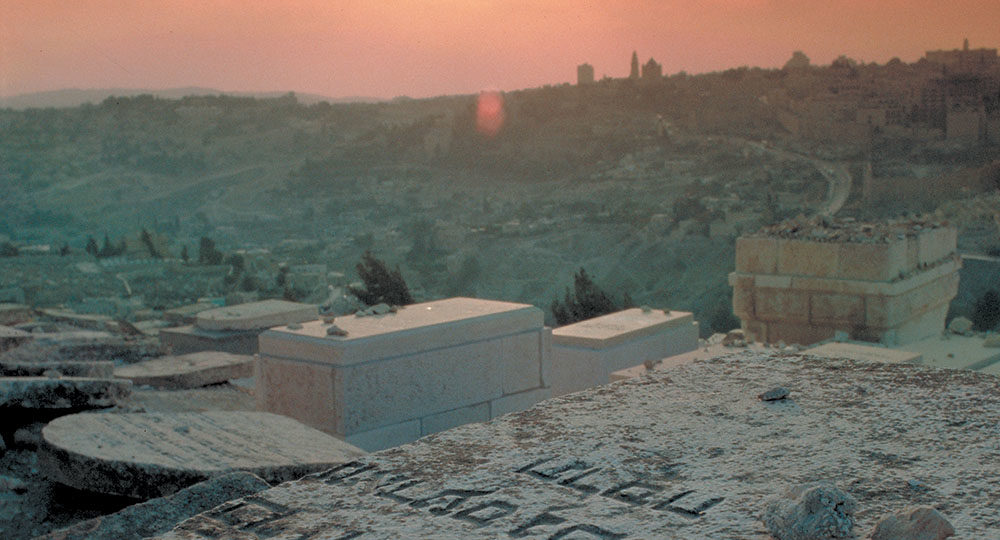

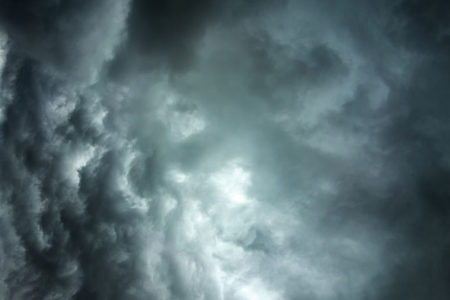
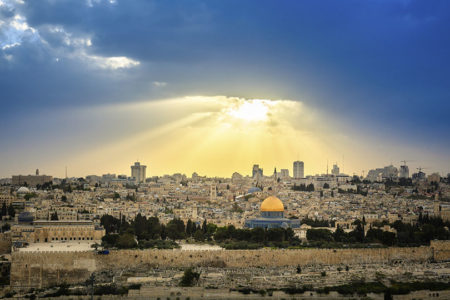
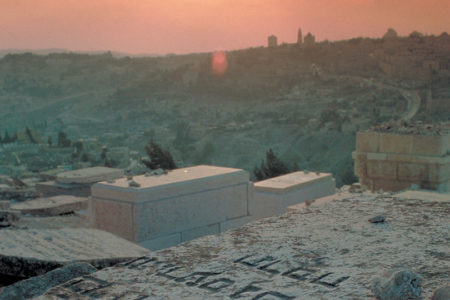
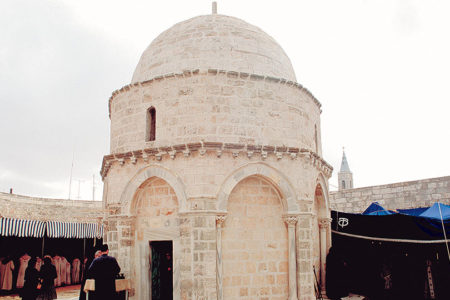


The Jews will recognize Jesus as the Messiah. But will they have the mark of the beast in their foreheads?
Or are these Jews condemned to eternal darkness. If they are to be saved, how can that be?
Or are these Jews that don’t have the mark of the beast, and have not decided to be believers in Christ?
The scripture makes it clear that we are saved by Grace through faith, not based on ethnic background. For anyone, Jews included, to be saved we must be born again. Without that, we are condemned. Anyone who receives the mark can never be redeemed. Yeshua will redeem all of his sheep, who have been sealed with the Holy Spirit.